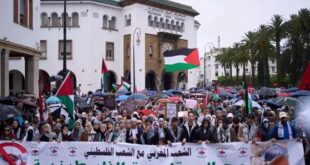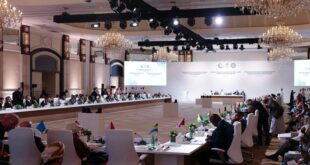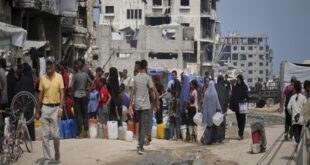
Like many in his home city of Punta Arenas, Gabriel Boric is of Croatian descent. His father’s ancestors were among the tens of thousands of Croatians who left their homeland at the end of the 19th century to travel to Chilean Patagonia in search of new opportunities. Many others sought fresh starts in neighbouring Argentina over the same period.
Chile is now home to one of the largest Croatian diasporas in the world, with an estimated population of between 200,000 and 400,000 people of Croatian descent.
Evidence of the community in Chile can be seen in the names of businesses and sports teams, and in the Croatian flags and coat of arms on the walls in bars, restaurants and cafes.
The first wave of migration, in the late 1800s, came as Chile and Argentina appealed for migrants to settle in their vast, sparsely populated areas.
Before the creation of the Chilean state, the dramatic fjords and inlets of Tierra del Fuego at the continent’s southernmost tip were home to a number of semi-nomadic peoples. But mercenary-led campaigns saw native populations wiped out almost entirely, including the Selk’nam, one of three Indigenous tribes in southern Patagonia, who were subjected to a brutal, genocidal cull.
In 1881, Chile signed a treaty to divide Patagonia between itself and Argentina, and began to grant vast tracts of pristine, forested land to wealthy proprietors at the turn of the 20th century. Barely controlled forest fires tore through Patagonia to make way for the colonisers to set up agricultural smallholdings, while others cleared land and built roads to colonise the area.
His ancestors were among the tens of thousands who left Croatia for Patagonia in the 19th century
The first Croatians arrived in the aftermath of the phylloxera plague that devastated vineyards on the Dalmatian coast, forcing many workers and growers to pursue livelihoods elsewhere.
Many Croats came to Punta Arenas to work in the area’s huge livestock sector, while others headed to the northern mining region of Antofagasta. Over the course of two or three generations, Chile’s Croatian newcomers moved from working as fishermen, builders and cattle farmers or being small business owners to becoming doctors, lawyers, engineers, teachers, journalists, civil servants and politicians.
One of Chile’s richest men is Andrónico Lukšić, a business magnate of Croatian descent who is part of a powerful Chilean dynasty that married into the Pinochet-Hiriart clan.
Boric’s father, Luis Javier Boric Scarpa, is a chemical engineer. His mother, María Soledad Font Aguilera, is of Catalan descent. When the wealthy, north-eastern Spanish region was plunged into crisis four years ago following the Catalan government’s illegal efforts to secede from the rest of the country, Boric said he was shocked by footage and photographs of Spanish police attempting to stop the unilateral referendum.
“The images of the police violence in Catalonia are shocking,” he tweeted. “A big hug from Chile to the Catalan people. More democracy, less repression.”

World Opinions News – agencies




 World Opinions Débats De Société, Questions, Opinions et Tribunes.. La Voix Des Sans-Voix | Alternative Média
World Opinions Débats De Société, Questions, Opinions et Tribunes.. La Voix Des Sans-Voix | Alternative Média




